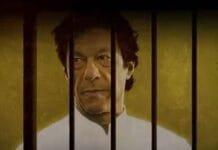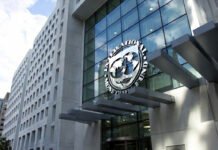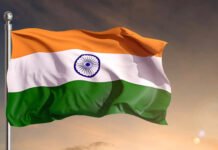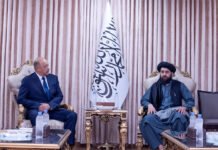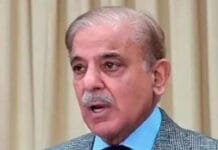In a major political development, Pakistan Tehreek-e-Insaf (PTI) has formally kicked off a nationwide protest movement demanding the release of its founder and former Prime Minister Imran Khan. The campaign, which began on Saturday in Lahore, marks a pivotal moment in Pakistan’s turbulent political landscape. With top PTI leadership converging in the provincial capital, the party has declared this as the beginning of an intensified effort to secure Khan’s freedom and reclaim its political space.
PTI Leaders Assemble in Lahore: The Movement Begins
The launch of the campaign from Lahore signifies more than just a symbolic gesture. Lahore, historically the political heartbeat of Pakistan, has often been the epicenter of national upheaval. On Saturday, senior PTI figures including Khyber Pakhtunkhwa Chief Minister Ali Amin Gandapur, assembled in the city to lead what they are calling the definitive struggle for justice.
Speaking at a press briefing, Gandapur declared that the movement would reach its peak intensity by August 5, indicating a sustained and strategic campaign over the coming weeks. The party leadership vowed not to relent until Imran Khan is released unconditionally.
Suspension of 26 Punjab Assembly MLAs: A Catalyst for Action
Prior to the Lahore convergence, a critical meeting was held in Islamabad, where PTI’s core leadership evaluated the current political climate. Of particular concern was the suspension of 26 Members of the Punjab Assembly (MPAs)—a move that the party claims is part of a broader effort to suppress political dissent. This development galvanized PTI to consolidate support across the provinces, treating the suspensions not only as a legislative crisis but a direct attack on democratic representation.
In response, PTI’s strategic blueprint includes legal challenges, mass mobilization, and a synchronized effort to pressure both provincial and federal institutions.
Imran Khan’s Legal Ordeal: The Core of the Movement
Imran Khan, who led Pakistan from 2018 to 2022, remains incarcerated amidst a flurry of legal and political controversies. His supporters claim the charges are politically motivated and designed to eliminate him from the electoral playing field. Since his arrest, there has been an escalating chorus within PTI ranks and among the general public demanding his immediate and unconditional release.
The current movement positions Khan as a symbol of political resistance, and his imprisonment is framed by the party as an assault on democracy and constitutional rights.
Mobilization Strategy: Province-by-Province Expansion
PTI’s organizational machinery is now fully engaged in rolling out the movement nationwide. Each province has been tasked with conducting rallies, protests, and mass gatherings, culminating in a unified national front by early August.
Punjab: As the starting point, Lahore is hosting daily sit-ins and public addresses by party leaders.
Khyber Pakhtunkhwa: Under CM Gandapur’s leadership, KP is expected to see large-scale mobilizations in Peshawar, Abbottabad, and Swat.
Sindh: Karachi will be a major battleground, with planned demonstrations in Saddar, Gulshan-e-Iqbal, and Malir.
Balochistan: Though traditionally less active politically, PTI has activated its regional chapters in Quetta and Gwadar to expand its footprint.
This decentralized yet coordinated approach is meant to ensure maximum visibility and pressure across all regions of Pakistan.
Public Sentiment and Social Media Surge
The announcement of the movement has triggered a massive social media wave, with hashtags like #ReleaseImranKhan, #PakistanNeedsIK, and #JusticeForKhan trending on platforms such as Twitter, Facebook, and Instagram. PTI’s digital media teams are operating in full force, producing videos, live streams, and infographics to maintain momentum and counter what they describe as a state-controlled media narrative.
The public response has been significant, with citizens taking to the streets in support of the cause. University students, business owners, and civil society organizations have pledged solidarity with the PTI-led movement.
Security Tightens Amid Growing Unrest
In response to PTI’s mobilization, the government has beefed up security measures in key cities. Lahore, Islamabad, Peshawar, and Karachi are under surveillance, with reports of increased police presence and deployment of paramilitary forces. Authorities have warned of strict action against any activity deemed to disrupt public order.
Nevertheless, PTI leadership has reaffirmed its commitment to a peaceful, democratic struggle, emphasizing that their movement is rooted in constitutional rights and political freedom.
International Attention and Diplomatic Ripples
The movement has caught the attention of international observers, with several global human rights organizations voicing concern over Khan’s incarceration and the broader state of civil liberties in Pakistan. The European Union and several Western diplomats have urged the Pakistani government to ensure due process and judicial fairness.
This international spotlight has added a layer of diplomatic pressure, as Pakistan navigates its economic recovery plans and seeks foreign investment and aid.
Timeline to August 5: What to Expect
With August 5 set as the target date for the movement’s climax, PTI’s roadmap includes:
Daily sit-ins in provincial capitals
City-wide rallies and corner meetings
Petitions in high courts and the Supreme Court
Mass media campaigns via traditional and digital platforms
Coordination with legal and civil society allies
By strategically aligning legal, political, and public pressure, PTI aims to force a reversal of decisions against Khan and reinstate the democratic framework they believe has been subverted.
Conclusion: A Defining Chapter in Pakistan’s Political History
This nationwide protest movement, spearheaded from Lahore, may emerge as one of the most consequential political events in recent Pakistani history. The detention of Imran Khan, coupled with the suspension of elected representatives, has ignited a storm of resistance led by a party refusing to fade into political obscurity.
As the calendar advances toward August 5, all eyes remain on PTI’s next moves—and on the government’s response to a movement that is steadily gaining national and international traction.



